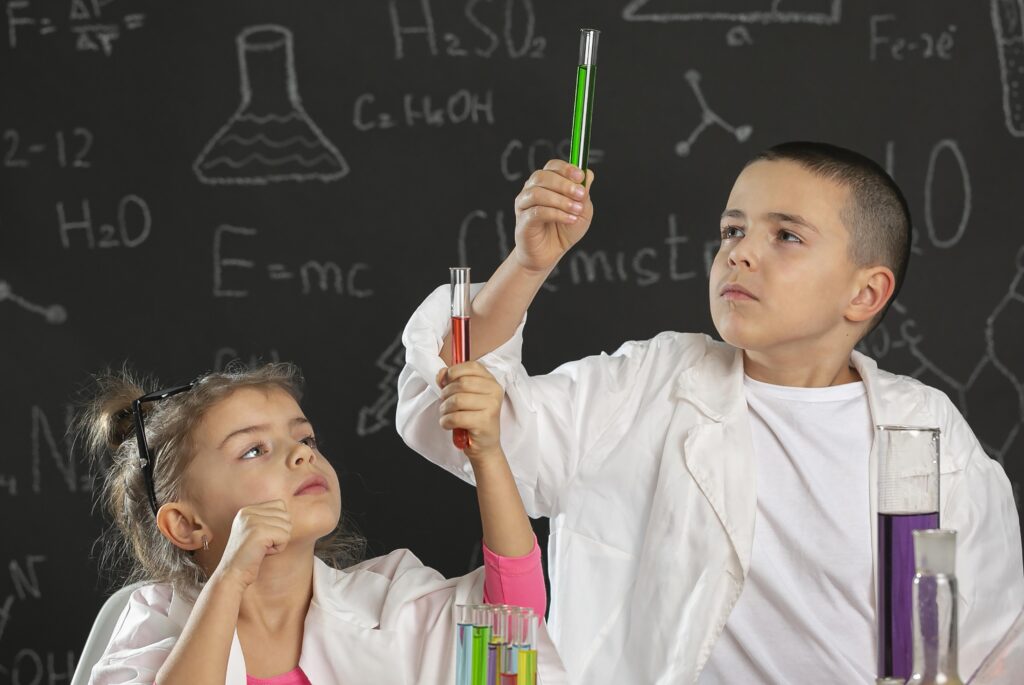- ADMIN
Who Is the Father of Science? Discover the Origins of Science

Science has witnessed significant contributions in the form of principles, theories, laws, methodologies, ideas, discoveries and scientific thoughts from geniuses across the world. The people who made groundbreaking discoveries are termed the fathers of that particular field. For instance, Aristotle is known as the “Father of Biology” crediting his contributions in the fields of Biology and Zoology.
These titles are significant in the history of scientific thought because they highlight the impact of these distinguished people in shaping the future of Science and humankind. Their legacy has provided the foundation to carry out further research and experiments.
In this blog, let us explore the historical background of Science, key figures and their contributions to the world of Science.If you have just passed out of 10th grade and are in search of the best PU college, do visit our site, as we have also provided career paths suitable after college.
Historical Background of Science
An overview of the development of Science from ancient times till the arrival of the Renaissance period is given below:
Ancient Times (3000 B.C.–500 C.E.)
In the early years, the Mesopotamians applied observational knowledge in practical situations. For instance, mornings and nights were recognised based on the timings of sunrise and sunset. The birth of scientific inquiry happened with the emergence of Greek scientists like Aristotle, Pythagoras, Archimedes, and Ptolemy. For example, Ptolemy’s geocentric model laid the base for future research. The Roman kingdom also played a key role by contributing encyclopaedic works on Science.
Mediaeval Period (c. 500–1400 CE)
After the decline of the Roman Empire, the importance of scientific discoveries and the interest in Science dropped. The Islamists from the 8th–13th centuries worked and built upon the ancient discoveries to perform extensive research and produce their own works. By the end of the 12th century, the revival of Science was seen in Europe. They used Arabic texts and ancient Greek works to rediscover new methodologies and theories.
Renaissance Period (14th–17th centuries)
This period saw the rise of scientific learning. They placed a profound interest in Greek and Roman texts and expanded on them. For instance, Nicholas Copernicus proposed the heliocentric model that challenged Ptolemy’s geocentric model. The approaches during this period were based on empirical formulas and understanding the natural world.
From the 16th–17th century, the idea of Modern Science commenced. New mathematical models and improved methodologies were used to discover and explore ideas. This period is known as the scientific revolution.
Key Figures in Early Science
Science has been blessed with the discoveries and innovations of great personalities. A few noteworthy contributions include:
Key Figures | Contributions |
Aryabhatta |
|
Pythagoras |
|
Aristotle |
|
Archimedes |
|
Ptolemy |
|
Al Khwarizmi |
|
Nicolaus Copernicus |
|
Leonardo Da Vinci |
|
Johannes Kepler |
|
Galileo Galilei: The Father of Science
One prominent scientist in the era of the scientific revolution was Galileo Galilei. He is hailed as the “Father of Science” because of his immense offerings in the fields of philosophy, astronomy, and Science. He donned many hats as a physicist, philosopher, astronomer, and professor.
This Italian scientist is also given other titles like “Father of Modern Astronomy” because of the following disruptive discoveries:
- He discovered a telescope to observe and study celestial objects. Using this, he made multiple scientific observations.
- Giving new upgrades to the telescope versions, he studied the stars in the Milky Way, phases of Venus, four main moons of Jupiter, rings of Saturn and sunspots.
- He invented the thermoscope and was also involved in the development of Thomas Cook military compasses.
- He is credited with inventing the first microscope and also for releasing the magnified versions.
- He leveraged the telescope to improve the accuracy of the military and ballistic compass.
The Impact on Modern Science
Galileo’s modern scientific methods were a cornerstone for subsequent advancements:
- Galileo focused more on experimentation and observation than speculation.
- He used mathematical analysis to prove scientific explanations precisely.
- He backed heliocentrism that challenged traditional assumptions, promoting scientific inquiry.
- His approach was a blend of observation, experimentation, hypothesis and conclusion, with priority for repeated testing.
- His ideas such as motion and inertia influenced scientists like Newton to formulate the laws of motion.
Legacy and Recognition
Galileo is an influential figure who has left a rich legacy behind him. He is remembered even today for his illustrious career. He pioneered the application of experimentation and use of scientific methods, which are still in practice. His remarkable astronomical discoveries have helped scientists understand and design satellites. In recognition of his work, NASA launched the first unmanned research spacecraft to orbit Jupiter called Galileo. The European Space Agency, along with the European Union, launched GPS (Galileo Positioning System).
Debates and Alternative Views
Galileo received backlash from the Catholic Church for supporting the heliocentric model developed by Copernicus. This is because the Church had strongly endorsed geocentrism and was of the opinion that his theories went against religious beliefs. Few contemporaries of his mocked him for not showing conclusive proofs about the heliocentric model. In 1633, he was sentenced to death.
He misinterpreted the cause of tides and rejected Kepler’s view of tide formation. This scientific error was criticised by many scientists at that time. He also refused to accept the planetary laws of motion, mainly the idea of elliptical orbits. This showed his conservative attitude.
Conclusion
Galileo has pioneered various scientific methodologies and his work has inspired many minds to pursue careers in the field of Science. His contributions have made a huge impact on the perception of Science and are still relevant in today’s world. Despite the controversies, his amazing discoveries cannot be neglected and they deserve appreciation.
If you are interested in pursuing a career in Science, consider the Science course offered at our school: https://nhpuc.in/courses/.
Frequently Asked Questions (FAQs)
Why is Galileo Galilei Considered the Father of Science?
Galileo is called the Father of Science because he emphasised the experimental scientific method and made important discoveries. His contributions to the field of astronomy are also noteworthy.
What were Galileo Galilei’s Major Scientific Contributions?
The major scientific contributions of Galileo include the discovery of the telescope and thermoscope. Using these devices, he studied the phases of Venus, moons of Jupiter, sunspots and stars in the Milky Way. He promoted scientific inquiry and an empirical approach.
How did Galileo Galilei influence Modern Scientific Methods?
Galileo was the first person to use experimental scientific methods. He discovered instruments like telescopes and upgraded them frequently. His approaches towards science influenced scientists like Newton and his practices are still in use.
What is the Historical Significance of Galileo’s Discoveries?
Galileo’s astronomical observations revolutionised the field of astronomy. His works laid the cornerstone for modern scientific methods. His support for heliocentrism, ignoring the traditional ideas, went against the Church’s viewpoint.












